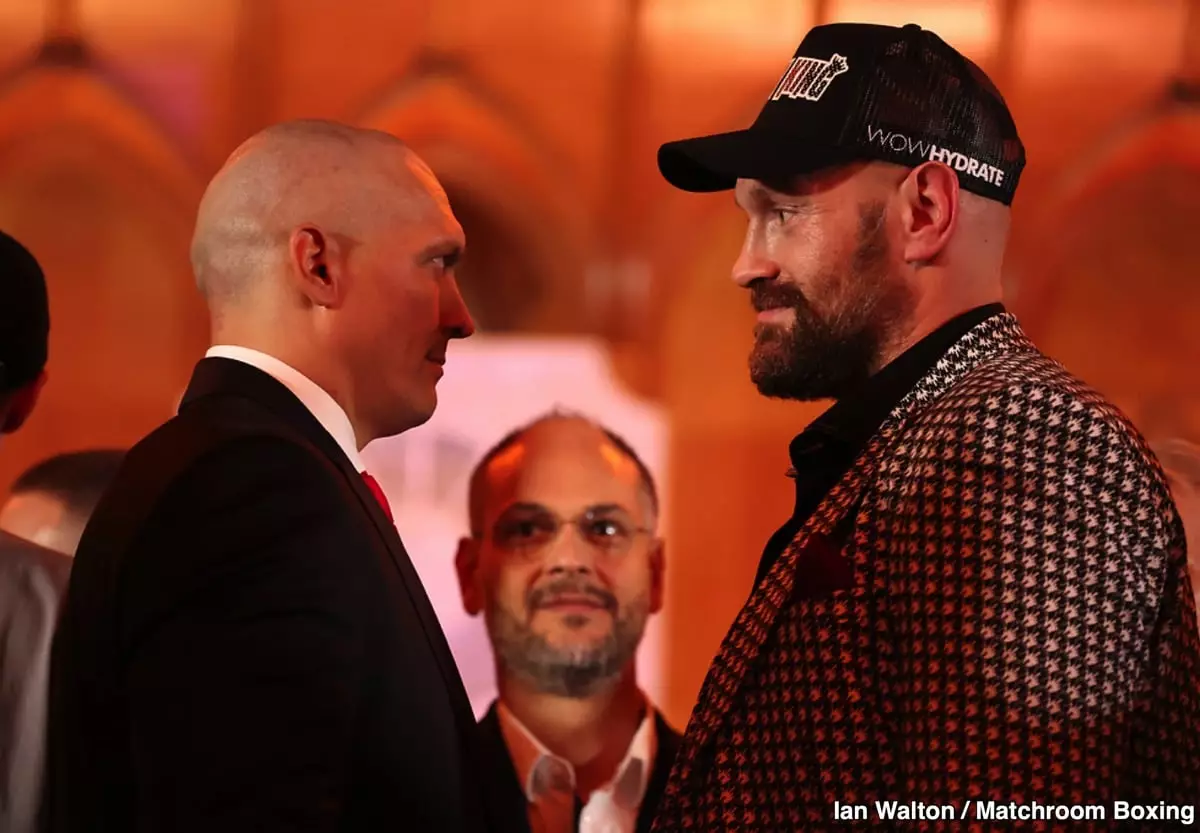Tyson Fury’s recent defeat to Oleksandr Usyk has raised significant concerns about his ability to perform in their upcoming rematch, scheduled for December 21st. The intensity of Fury’s loss is not merely a statistic; it represents the emotional and physical toll that such an event can have on a fighter. Coming off a grueling nine-round bout that saw Fury falter under Usyk’s relentless strategy, many boxing analysts and fans are speculating whether the “Gypsy King” can bounce back convincingly. The damage—both mental and physical—that Fury incurred in that fight may linger, potentially impacting his performance in future bouts.
His discussions surrounding a possible trilogy with Usyk, should he lose again, seem impractical. It raises questions about Fury’s real intentions and whether he should be immediately thrown back into the ring against one of boxing’s most skilled practitioners, especially when other contenders are eagerly waiting for their shot at the title.
At 36 years old, with a record of 34 wins, 1 loss, and 1 draw—including 24 knockouts—Fury’s extensive experience in the boxing realm is both a blessing and a curse. Since his split decision loss to Usyk on May 18th, Fury appears to have struggled significantly. Observers have noted a marked change in his physical appearance over the months; he seems to be carrying extra weight, which may impact his agility and stamina in the ring. It’s a stark reminder of how the psychological impacts of a loss can manifest physically. Fury’s fluctuating condition presents a dual challenge: regaining both physical fitness and mental confidence.
The shift in Fury’s demeanor and condition post-fight has sparked speculation regarding his lifestyle choices since the defeat. A natural tendency for many athletes is to react to setbacks with misguided indulgences, which could explain the weight gain Fury has been grappling with. If the mental resilience isn’t there, the body can often reflect that struggle through poor conditioning.
Eddie Hearn’s insights offer worthy reflections on potential reasons behind Fury’s failure in the previous match. He points to the need for unwavering concentration against a skilled opponent like Usyk. However, a more profound analysis points away from mere distraction. Fury’s inability to cope with Usyk’s tactical prowess and agility is central to understanding the outcome. The extensive wear and tear from his previous encounters, including the intense trilogy with Deontay Wilder, have likely taken a toll on Fury’s punch resistance and overall adaptability in high-stakes scenarios.
The conclusion drawn from experts is that Usyk’s capabilities essentially dismantled Fury’s game plan. Hearn’s statement about Fury edging the first half of the fight highlights a momentary advantage overshadowed by Usyk’s stronger strategies that took precedence as the fight progressed. The foreboding question still lingers; what can Fury learn from this and implement in their upcoming showdown?
As Fury prepares for this critical rematch, the adage “what doesn’t kill you makes you stronger” resonates deeply. Yet, the contrast between theoretical resilience and practical application in the ring is vast. Fury undeniably possesses a remarkable strategic mind; however, converting that intellect into a winning performance is where the challenge lies.
Usyk’s previous performance revealed his ability to adapt, and it remains to be seen whether Fury can counteract that in their next encounter. The intriguing aspect of this rematch is rooted in the tactical chess game that will unfold. Boxing fans are not only invested in the fighters’ records but are also eager to witness whether Fury can tap into his prior experiences and emerge not just as a competitor but as a formidable contender once again.
Timing, discipline, and mental fortitude will dictate the outcome this time, and it is essential for Fury to harness his past experiences while avoiding pitfalls that could lead to another harsh defeat. The boxing world watches, anticipating a confrontation that transcends mere rivalry to encapsulate the complexities of triumph and tragedy within the sport.


Leave a Reply